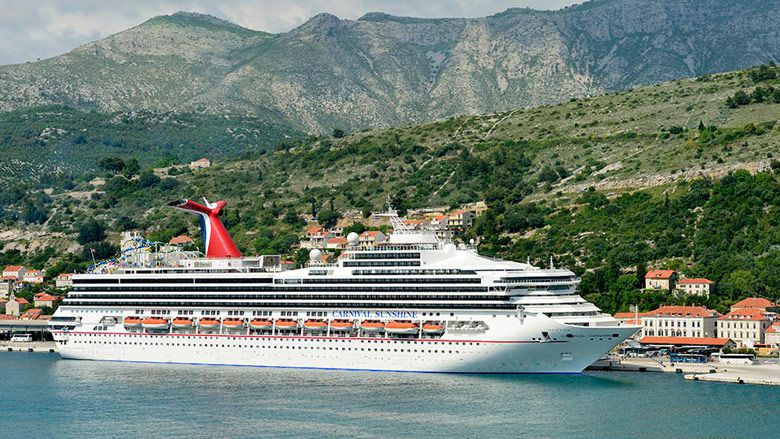Leading Cruise Lines Partner With Conservation NGOs

On Monday and Tuesday, the world's two largest cruise lines announced partnerships with ocean conservation nonprofits, including an initiative to map ocean resources and a commitment to sustainability targets for sourcing and carbon emissions.
Carnival Corporation has announced that it is hosting leading conservation, science and sustainability organizations for The Nature Conservancy’s (TNC) annual Mapping Ocean Wealth forum on Tuesday and Wednesday.
Participating NGOs, firms and agencies include the World Bank, the U.S. National Oceanic and Atmospheric Administration (NOAA), World Resources Institute (WRI), the University of British Columbia, Duke University, GRID-Arendal and others.
The forum is designed to improve oceanographic knowledge of the distribution and location of natural resources, so as to better focus investments in conservation, restoration and economic development.
“Mapping Ocean Wealth demonstrates what the ocean does for us today so that we can maximize what the ocean does for us tomorrow,” said Rob Brumbaugh, director of ocean mapping and planning for The Nature Conservancy.
It will also include updates on climate research, coral reef and mangrove protection, all important to Carnival's worldwide operations.
“The Nature Conservancy’s Mapping Ocean Wealth project will identify the most critical areas for public and private action in support of our oceans, as well as help showcase the latest research on issues such as tourism, coastal protection and fish production,” said Elaine Heldewier, sustainability director for Carnival Corporation.
Carnival has supported TNC for some time, with gifts including $500,000 a year for five years towards conservation initiatives like Mapping Ocean Wealth.
Meanwhile, Royal Caribbean Cruises and World Wildlife Fund (WWF) announced Monday a five-year global partnership to reduce Royal Caribbean's environmental footprint, raise awareness about ocean conservation among cruisers, and support WWF's oceans conservation work.
"This initiative centers on two core concepts: first, committing to specific and measurable targets to reduce carbon emissions, increase sustainable sourcing and build destination stewardship; and second, comprehensively engaging their millions of travelers," said Carter Roberts, WWF-US President and CEO.
The goals, for completion by 2020, include a 35 percent reduction in carbon emissions, plus the sourcing of 90 percent of wild-caught seafood (and in North America and Europe, 75 percent of farmed seafood) from certified sustainable fisheries. Royal Caribbean will also implement traceability protocols to ensure that its seafood is procured in a verifiable manner.
"Our mantra at Royal Caribbean is 'Continuous Improvement,' and this partnership with WWF represents a great opportunity to . . . protect the oceans," said Richard D. Fain, Royal’s Chairman and CEO. "Together we are setting aggressive goals and together we will start implementing them right away."
World Wildlife Fund separately markets cruise tourism through an arrangement with Natural Habitat Adventures, its “global partner in conservation travel.” NHA is the “world’s first carbon-neutral travel company,” and specializes in small group adventure tours. It is a subsidiary of NASDAQ-listed Gaiam, Inc.
